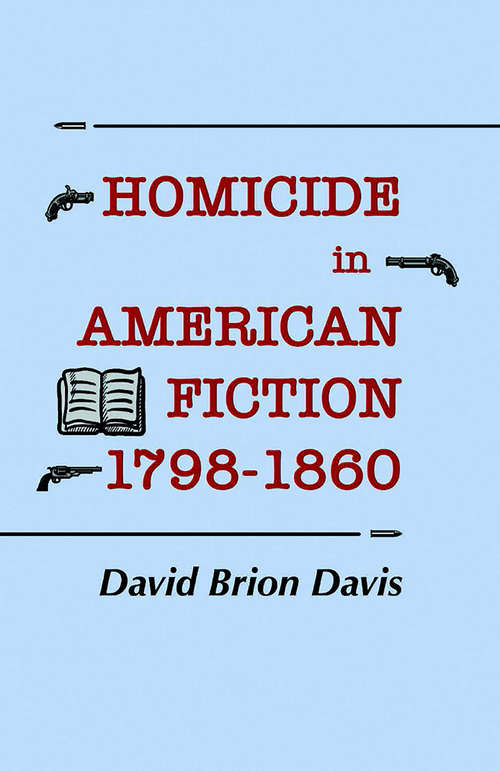Homicide in American Fiction, 1798–1860: A Study in Social Values
By:
Sign Up Now!
Already a Member? Log In
You must be logged into Bookshare to access this title.
Learn about membership options,
or view our freely available titles.
- Synopsis
- Homicide has many social and psychological implications that vary from culture to culture and which change as people accept new ideas concerning guilt, responsibility, and the causes of crime. A study of attitudes toward homicide is therefore a method of examining social values in a specific setting. Homicide in American Fiction, 1798–1860 is the first book to contrast psychological assumptions of imaginative writers with certain social and intellectual currents in an attempt to integrate social attitudes toward such diverse subjects as human evil, moral responsibility, criminal insanity, social causes of crime, dueling, lynching, the "unwritten law" of a husband's revenge, and capital punishment. In addition to works of literary distinction by Cooper, Hawthorne, Irving, and Poe, among others, Davis considers a large body of cheap popular fiction generally ignored in previous studies of the literature of this period. This is an engrossing study of fiction as a reflection of and a commentary on social problems and as an influence shaping general beliefs and opinions.
- Copyright:
- 1968
Book Details
- Book Quality:
- Publisher Quality
- ISBN-13:
- 9781501726224
- Related ISBNs:
- 9780801490668, 9781501726200, 9781501726217
- Publisher:
- Cornell University Press
- Date of Addition:
- 05/11/20
- Copyrighted By:
- Cornell University
- Adult content:
- No
- Language:
- English
- Has Image Descriptions:
- No
- Categories:
- History, Nonfiction, Literature and Fiction, Mystery and Thrillers, Language Arts
- Reading Age:
- 18 and up
- Submitted By:
- Bookshare Staff
- Usage Restrictions:
- This is a copyrighted book.
Reviews
Other Books
- by David Brion Davis
- in History
- in Nonfiction
- in Literature and Fiction
- in Mystery and Thrillers
- in Language Arts
